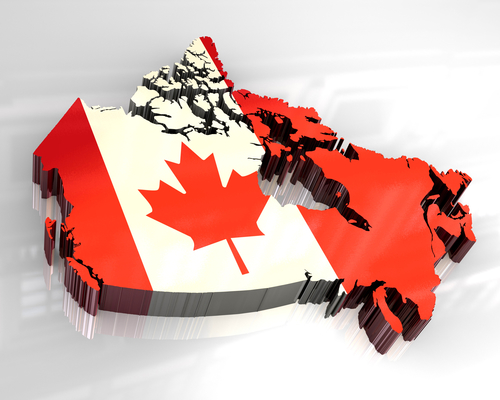Special to the Financial Independence Hub
I have to apologize to my CFL fan friends, particularly in Saskatchewan, where I have found it the rule rather than the exception to find a shrine to the fabled “Riders” in clear site in most offices. The game just doesn’t do it for me. The one, two punt monotony of the game isn’t overcome by the stoic resolution to play in Stalingrad like conditions on the Prairie in late fall.
With his second foray into Budget making, Finance Minister Bill Morneau’s attempt must be described as nothing more than a punt. In this instance they have kicked away the ball to see what the offense south of the border will do. For fiscal conservatives, who believe budgets should only go into deficit when faced with financial calamity, rather than to send the swag to the long list of Liberal sacred cows, pet projects and friendly consultants, this Budget was more of the same Keynesian dirge, although with veiled threats of further confiscation of wealth. Certainly Prince Justin and LSE alumni Billy are taking marching orders from the reconstituted politburo to lay low and wait to see what The Donald can get through.
The Trump tax reform package, which despite the recent (and what I am sure will be a temporary) hiccup in repealing and replacing Obamacare, will likely enjoy complete GOP support and support of Democrats concerned about re-election in 2018, is the most ambitious tax plan to see the light of day since the days of Ronaldus Magnus. It puts the Trudeauopian punitive “tax the hell out of everyone who wants to save 10 cents” dictum in definite jeopardy. It would reduce all tax rates, including the top rate down to 33% from to 39.60%.
Canadian top tax rates kick in at just $200,000, half that of the US
Canadians should know that the top bracket in the US doesn’t kick in until you hit an income of US$418,000 as an individual, $470,700 if you file jointly and $444,550 if you file as a head of household with dependents. Remember the Little Prince cancelled the miniscule Family Tax Cut ($2k) professing claims of “fairness”. Canadian top rates kick in at C$200,000.
The Trump plan also calls for an across-the-board reduction of corporate tax to levels between 15% and 20%. The Americans have maintained some of the highest corporate taxes in the G7 for a decade, resulting in a myriad of transfer pricing strategies and byzantine international tax structures to keep profits out of the clutches of the IRS.
The plan also calls for an amnesty on repatriating “profits” held offshore back to the U.S., which is estimated to bring up to 2.3 trillion dollars back into the country. In 2004 President George W. Bush instituted a one year Repatriation Tax Amnesty that was a roaring success. Transactions such as the Tim Horton’s – Burger King “inversion” deal will unravel overnight in the face of those two profound policy changes. Trump has also proposed taking one of the few rational elements of the Canadian system, that is the “deemed disposition” of assets upon death and replacing the heinous U.S. estate tax.
Flight of capital already begun as 1% fleeing south
These tax measures will put profound strains on the Canadian economy. I can assure you that the flight of capital is already starting, as the so called “1%” already moving south. The spectre of a reduced tax burden and much better weather will see professionals leave first. Entrepreneurs, particularly in Ontario will start migrating.
Given the choice of a vibrant pro-business federal government (often matched by eager State governments), supportive lending institutions, and a labour force (even the unionized ones) eager to work or, listening to the social justice drone of the Wicked Witch of Queen’s Park and her forest of windmills, working hand in hand with The Trust fund boys, Justin, Billy and their good friend Gerald Butts, the choice is an easy one.
Federal budget introduced no new tax measures
The Federal Budget introduced no new tax measures. It included a great deal of Liberal gobbledegook about “innovation” with nothing to actually encourage it. Where is the Canadian “patent box,” which would give truly innovative Canadian companies and educational institutions a competitive advantage? It talks about being “gender-sensitive,” which is surely a promise for more Liberal social engineering. The Budget did however promise future draconian measures, particularly directed against small business, family enterprise and professional corporations.
Income splitting and dividend sprinkling, a common strategy employed robustly for decades, regardless of whether 24 Sussex had a Conservative or Liberal tenant, has come under fire. Once again the genuflection at the altar of “fairness,” as viewed through a Marxist lens is given primacy.
Looming attack on Small Business
For the Liberals are the party of Big Banks, Big Insurance, Civil Service Unions, Rosedale, Mount Royal, and Rockcliffe Park. In their world they simply know better. Their idea of a successful family enterprise is a porcine inheritance, or a life-long sinecure at Daddy’s company. The fact that small business, particularly family business is the bedrock of a vibrant economy is simply lost on them. These entrepreneurs with steadfast belief in personal responsibility harness hard earned resources for a common good, based upon common sense and create wealth that benefits their families, their employees and inevitably, society. They don’t sit around on the private island of the Aga Khan, or sip lattes south of Queen St discussing how green energy, and safe spaces are the panacea to all social and economic ills.
As part of their attack on perceived tax “advantages” Mr. Morneau has also targeted corporately held investments for a round of scrutiny and correction. They argue that using the lower corporate rates has allowed business owners and professionals to build considerable portfolios.
Death knell for planning
This is an attack on small business, and professional corporations in particular. It should also be a clarion call to anyone in the investment or insurance industry, for if the Liberals were to administer correction, which would be the elimination of any tangible deferral by using a corporation; it would be a death knell for planning. For decades we in the planning and strategy field have recognized the usefulness of utilizing a corporately held policy together with the future credit to the Capital Dividend Account to undertake fundamental and necessary tax planning. Once again, Mr. Morneau, true to his Fabian instruction is doggedly implementing a policy agenda routed in Marx.
The Liberal tax policy is quite simple, and one must give them kudos for understanding the mechanics of tax policy; it is to thwart the ability to realize any meaningful tax reduction, target tax deferral planning and given the current over integrated state, force everyone to take robust T4, thus exposing that income to ravenous tax rates. Savings will be restricted, capital growth will be hamstrung and the omniscient Liberal mandarins will have expanded control of economic activity.
Canadians who actually contribute to this economy should cheer on Donald Trump’s tax plans. For if successful one would hope that even the LSE chorus currently running the Department of Finance might have a moment of doubt and give pause to their confiscatory zeal. For if that last bulwark does not hold rumoured tax measures, such as increasing capital gains inclusion rates, taxing benefit programs, making the Small Business Deduction dependent on the number of full-time employees, income and dividend restriction through steroid pumped inclusion rules are all too likely.
Trudeau and his kumbaya ministry have punted. Here is to hoping team Trump can drive the ball down the field and score a touchdown for prosperity. It is the height of irony that Trump’s actions may force Canada to become Great Again.
 Trevor Parry is the President of the TRP Strategy Group, specializing in owner manager tax and compensation planning, executive compensation, philanthropic strategies, enhanced retirement planning and professional corporation planning. Trevor was formerly the National Sales Director of GBL, a boutique actuarial consulting firm. In addition to his practice he speaks and writes extensively on financial strategy, planning and tax issues.
Trevor Parry is the President of the TRP Strategy Group, specializing in owner manager tax and compensation planning, executive compensation, philanthropic strategies, enhanced retirement planning and professional corporation planning. Trevor was formerly the National Sales Director of GBL, a boutique actuarial consulting firm. In addition to his practice he speaks and writes extensively on financial strategy, planning and tax issues.


